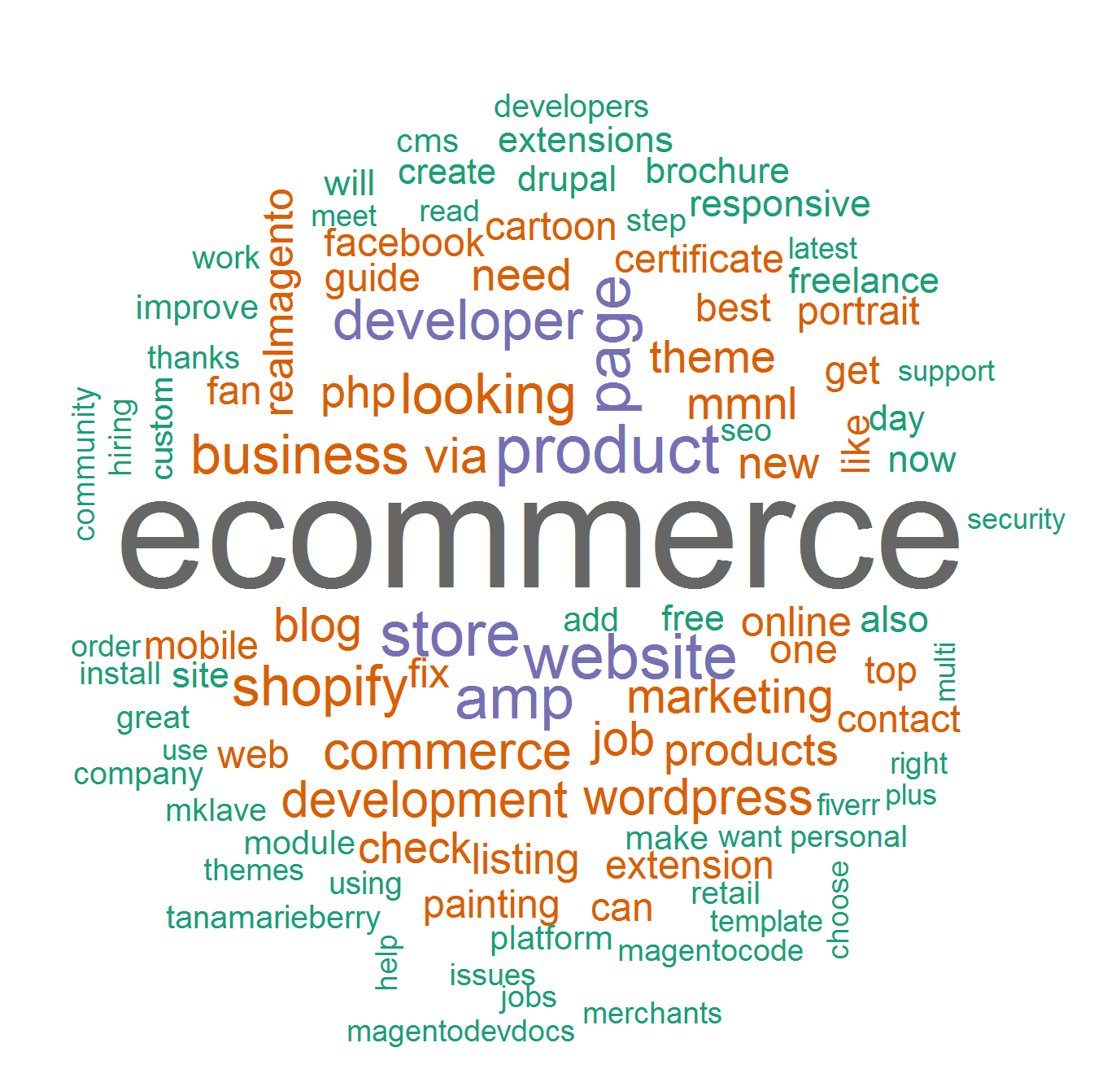
We can’t really find (at least at the moment) what people think about different topics, but thanks for technologies we can find out what they write about it, which is rather close in many cases.
Today I decided to explore what people write about different ecommerce platforms since this is the area I work. So I selected several popular platform for the analysis:
- Magento
- Hybris
- Shopify
- WooCommerce
- Prestashop
- BigCommerce
- Intershop
As a source of data I took Twitter, which has minimal restrictions (all Twitter posts are public) and quite good API with solid R libraries. Yes, I used R for my analysis.
What exactly I decided to do:
- Collect tweets about each of the platform listed. I tried to collect 2,000 tweets if it was possible (for less popular platforms like Interhsop there were less tweets available).
- Process them – build what is called corpus and word frequency matrix with cleaned results (for example get rid of common words like ‘the’)
- Build word cloud for each platform. I limit the cloud by 100 most popular words and each word there should be used at least 3 times to get listed. The bigger the word in the cloud – more often it used when people write about a platform
Here is the results I’ve got at the end.
Magento

Hybris

Shopify

BigCommerce

Prestashop

WooCommerce

Intershop

Findings
This is a short post, not a deep analysis, but here are several interesting things I noticed:
- AMP is a hot term, referred often with all platforms
- Job market is probably quite hot for Hybris specialists
- For Prestashop most often people tweet about free modules
- Not sure why, but Intershop and glasses/sunglasses often mentioned together
I’ll leave a more comprehensive analysis for you or for another post.
The code
If you are interested to check R code used for this analysis – I have published it on Github
You are correct about Hybris. Job market is very hot and companies have a hard time finding professionals.
I hope that doesn’t kill the sales for Hybris.
Thanks for sharing that Alexandru. Always great to see confirmation of the research results from subject matter experts.